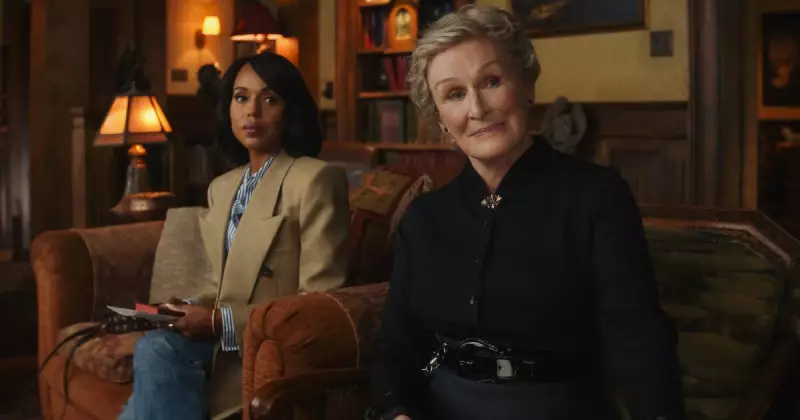
Australian crime movie enthusiasts have reason to celebrate as Daniel Craig reprises his role as the brilliant detective Benoit Blanc in the third instalment of Rian Johnson's critically acclaimed mystery series. Wake Up Dead Man continues the tradition set by Knives Out and Glass Onion, delivering another cleverly constructed puzzle that will keep audiences guessing until the very end.
A Southern Detective Returns
Daniel Craig appears to be having the time of his life once again, playing the wily investigator as what can only be described as a succulent piece of glazed Southern ham. The film maintains the series' signature elements: a twisty mystery narrative, an exceptional ensemble cast, and a skilfully utilised location that contributes significantly to the atmospheric storytelling.
Writer-director Rian Johnson has openly acknowledged his inspiration from Agatha Christie, though there's a distinct awareness that some characters exist primarily to serve the plot. However, Wake Up Dead Man - taking its title from a U2 song - introduces a more serious dimension that sets it apart from its predecessors, while maintaining Johnson's characteristic tongue-in-cheek approach to some of the more elaborate plot developments.
Sinister Setting and Suspicious Characters
The story unfolds in a small town in upstate New York at Our Lady of Perpetual Fortitude church, where Reverend Jud Duplenticy (Josh O'Connor) has been assigned after punching a deacon. A former boxer who turned to Christianity after killing a man in the ring, Jud finds himself at odds with the church's current leader, Monsignor Jefferson Wicks (Josh Brolin).
Monsignor Wicks rules his congregation with an iron fist, openly calling out parishioners' transgressions from the pulpit - an approach that has predictably dwindled attendance to what might be described as masochistic regulars. Jud's attempts to organise his own, gentler prayer meeting are met with disapproval from both the Monsignor and the remaining faithful, effectively killing his reputation in the small community.
The town's complicated history provides rich background for the mystery. Wicks has never replaced the church's cross since it was destroyed years earlier by his mother Grace during a violent episode after her father Prentice cut her out of his will for being what he called a 'harlot whore' - a phrase that recurs throughout the film with almost comedic frequency.
A Mysterious Death and Multiple Suspects
The plot thickens when, during a Good Friday service, Wicks retreats to a storage closet near the pulpit to recuperate after his sermon and collapses in a strange death with no obvious cause. The local police, led by Chief Geraldine Scott (Mila Kunis), are called to investigate, but it's the arrival of Benoit Blanc that promises a proper unravelling of the mystery.
While Jud becomes the prime suspect, the film presents numerous other characters with potential motives for wanting the Monsignor dead, or at least possessing knowledge they're reluctant to share. The impressive cast includes:
- Nat Sharp (Jeremy Renner) as a doctor
- Vera Draven (Kerry Washington) as a lawyer
- Simone Vivane (Cailee Spaeny) as a concert cellist with an undiagnosable condition
- Cy Draven (Daryl McCormack) as an aspiring Republican politician
- Lee Ross (Andrew Scott) as a science fiction writer experiencing a creative dry spell
Completing the suspect list are church workers groundskeeper Samson Holt (Thomas Haden Church) and organist Martha Delacroix (Glenn Close).
Beyond the Whodunit: Religion and Rationality
One of the film's most striking elements is its treatment of religion. Some viewers might find the destruction of Christian objects and the story's interpretation of 'resurrection' potentially controversial, along with the depiction of Wicks and certain congregants. Adding to this dynamic is Blanc himself, who emerges as an avowed anti-theist and advocate of rational thinking.
However, the film avoids becoming a wholesale critique of faith. Jud emerges as a deeply sympathetic character despite his violent past, and his verbal exchanges with Blanc provide some of the film's most thoughtful moments. This philosophical dimension gives Wake Up Dead Man a seriousness that elevates it beyond a simple mystery, offering audiences something substantial to ponder alongside the central question of whodunit.
For Australian fans who enjoyed the previous films, this latest chapter delivers everything they've come to expect from the series while adding new layers of complexity. With its excellent cast, clever plotting, and surprising depth, Wake Up Dead Man proves that murder isn't the only source of mystery in what might be Benoit Blanc's most compelling case yet.
The film is scheduled for release in Australian cinemas before eventually streaming on Netflix.





